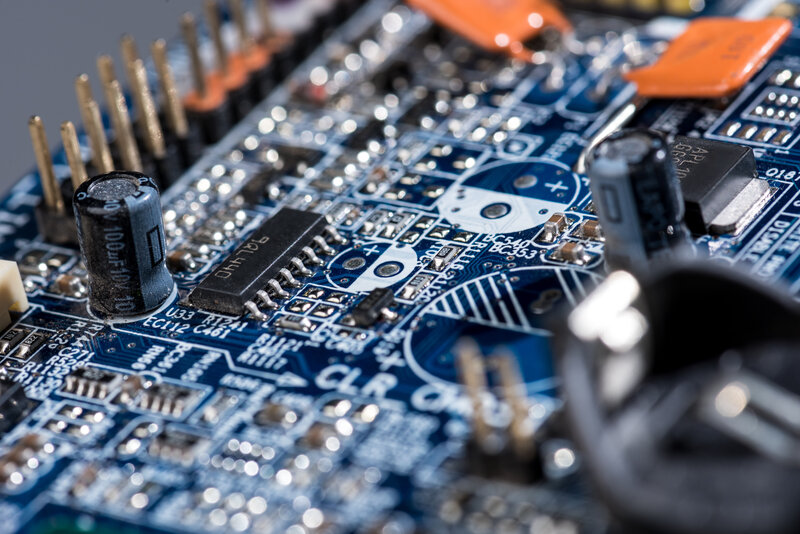
As technology advances, business owners and employees must stay updated with increasingly complex and fast-paced data storage systems. To meet these demands, businesses often turn to storage solutions that are both fast and cost-effective.
The traditional storage systems that many organizations rely on can hinder productivity and efficiency. Fortunately, there is a revolutionary new storage solution that can meet the demands of today’s businesses and boost productivity: computational storage.
This article will explain computational storage and how it can help your business grow and thrive. Additionally, we’ll recommend an excellent IT consultant in Dallas, TX, who can help you integrate computational storage into your business model.
What Does Computational Storage Do?
Computational storage is a data storage space that functions as a computer cluster. This feature means it can run multiple operations simultaneously to speed up data storage and processing.
Traditional storage systems rely on a single server to complete one procedure at a time. This approach is inefficient because it limits the amount of data the system can process at once.
Organizations must use multiple servers to offload processing tasks to handle more significant amounts of data. Computational storage simplifies things considerably by eliminating the need for multiple server locations. As a result, they allow businesses to conduct multiple data processing operations simultaneously.
How Does Computational Storage Work?
Computational storage devices rely on the parallelization of information collection. This function accelerates processing and stores data more efficiently than traditional storage systems.
These systems operate similarly to a clustered file system. However, they can store and access large amounts of data all at once without having to transfer files between separate storage devices.
By using a computational storage processor, the system breaks data down into small pieces that the system processes by the cluster in parallel and then stores in sequential order. This approach breaks down the data processing task into a series of smaller sub-tasks that can each be processed independently by the individual processors in the cluster.
Breaking down the data allows the system to process large amounts of data faster than traditional systems. At the same time, it stores the data sequentially to maintain compatibility with existing systems.
Advantages of Computational Storage
There are several advantages of using computational storage systems. A computational storage drive can exponentially boost the speed of data processing and storage compared to traditional storage systems.
It also facilitates data storage and retrieval by eliminating the need to split large data sets across multiple servers. Companies can enjoy significant reductions in the time it takes to perform essential data processing tasks. Their storage capacity will also greatly benefit from a computational storage system.
Computational storage systems are easier to maintain than traditional ones because they require less hardware and have fewer moving parts. This advantage makes them much less susceptible to damage or failure, ensuring they will work reliably over the long term. Server components are expensive, so purchasing a system that lasts as long as possible can save a business considerable money.
Finally, data security is a must when considering potential storage solutions. Computational storage provides a robust data protection mechanism that encrypts all incoming data, decrypting it only upon retrieval from memory. This feature ensures that no unauthorized users can access the information stored on a computational storage system, and the system will remain protected against malicious attacks.
Computational storage products also allow businesses to consolidate their data in a single location rather than relying on remote servers. This design element further reduces the risk of a data breach.
Disadvantages of Computational Storage
Like any data storage technology, computational storage comes with several disadvantages. The most obvious drawback is the increased cost of acquiring and operating these systems compared to traditional storage systems.
Computational storage systems are more complex and expensive to manufacture and maintain than their counterparts. This quality makes them prohibitively expensive for many smaller companies or startups. Another major disadvantage of computational storage is its reliance on high-performance computer hardware.
These systems require more processing power than traditional systems to perform their tasks. So, they require potent server hardware to operate correctly. This hardware represents another major technology investment for a company.
The devices used for computational storage tend to be much more expensive than standard servers. Companies that cannot afford to purchase top-of-the-line equipment will find that computational storage is not viable.
Lastly, since computational storage relies on a server to perform its tasks, these machines must constantly be online. They cannot be shut down when the system is not in use. Still, computational storage technology delivers a perfect solution to several issues for large companies with steep data processing requirements.
Is Computational Storage Right For Your Business?
Computational storage offers numerous benefits to businesses looking to streamline their operations and tighten their data security. Although these devices have a higher upfront cost than their conventional counterparts, their advanced features and processing capability help businesses save costs in the long run.
Computational storage may only be the right solution for some businesses. But for businesses that need it, these systems make a game-changing difference.
Get Experienced Help with Computational Storage and Other Technology Today
Equipping your company with the most efficient technology will undoubtedly give your business an edge over the competition. It can take time to determine which tools can help the most and how to integrate them effectively into your business plan. Working with an IT expert can help you target the right solutions for your business’s needs and budget.
At Network Elites, our technology experts streamline processes and improve efficiency at every level of your business. Whether you’re interested in computational storage, cloud storage, or other data management, we can design a high-impact solution tailored to your business.
Ready to learn more about how computational storage and other data solutions can impact your bottom line? Call Network Elites at (214) 247-6962 for assistance in Dallas, TX, and the surrounding areas. If you want to read all about fault tolerance or other interesting topics, explore the rest of our website.





